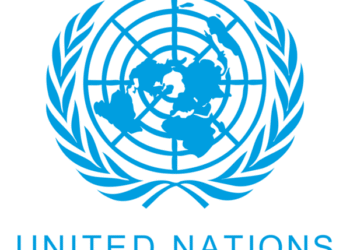AFP- European leaders were due to meet in Paris on Monday to address Washington’s shock policy shift on the war in Ukraine, as Britain declared itself ready to dispatch peacekeeping troops to Ukraine.
US President Donald Trump sidelined Kyiv and its European backers last week when he called his Russian counterpart Vladimir Putin to talk about starting negotiations to end the conflict.
The hastily convened informal summit of European leaders set to start at 4:00 pm (1500 GMT) comes after Trump said he could meet Putin “very soon”.
Hosted by President Emmanuel Macron at the Elysee palace, the meeting will gather the leaders of France, Germany, Britain, Italy, Poland, Spain, the Netherlands and Denmark, as well as the heads of the European Council, the European Commission and NATO.
The war in Ukraine is days short of its third anniversary on February 24.
Britain’s Keir Starmer said Sunday that he was willing to put “our own troops on the ground if necessary” in response to what he called “a once-in-a-generation moment for the collective security of our continent”.
Starmer also said he would meet with Trump in the coming days.
Trump has said he believes Putin genuinely wants to stop fighting in Ukraine, while his administration has warned its NATO allies that Europe will no longer be its top security priority.
– ‘Take a leap forward’ –
US defence chief Pete Hegseth also appeared to rule out Ukraine joining NATO or retaking all of its territory lost since 2014.
The meeting will address “the situation in Ukraine” and “security in Europe”, the French presidency said.
“Because of the acceleration of the Ukrainian issue, and as a result of what US leaders are saying, there is a need for Europeans to do more, better and in a coherent way, for our collective security,” an adviser in Macron’s office said.
The Kremlin has pushed for negotiations between US and Russian officials in Saudi Arabia — due on Tuesday — to discuss not just the Ukraine conflict but also broader European security.
European nations fear that Putin could reiterate demands he made prior to the 2022 invasion towards limiting NATO forces in eastern Europe and US involvement on the continent.
Ukrainian President Volodymyr Zelensky was to visit Saudi Arabia on Wednesday, one day after the meeting between top US and Russian officials.
US Secretary of State Marco Rubio arrived in Saudi Arabia on Monday, as part of a Middle East tour which he started this weekend in Israel.
Rubio had earlier sought to play down expectations of any breakthrough at upcoming talks with Russian officials.
“A process towards peace is not a one-meeting thing,” he told the CBS network.
Trump’s special envoy to Ukraine, Keith Kellogg, has said Europe would not be directly involved in talks on Ukraine, though it would still have “input”.
French Foreign Minister Jean-Noel Barrot said Sunday it would fall to Europe to guarantee any peace deal in Ukraine, adding he expected the United States to “revise their level of commitment to NATO, including in terms of geography”.
The American policy shift “requires that we truly wake up, and even take a leap forward, to take our place for the security of the European continent”, Barrot said.
He told the LCI news channel that talks were already underway, involving notably France, Britain and Poland, to guarantee a future ceasefire and “lasting peace” in Ukraine.
– ‘Peace is still far off’ –
Spain’s foreign minister, Jose Manuel Albares, said however that while it was necessary for Europeans to meet and prepare decisions, “nobody is currently planning to send troops to Ukraine, especially because peace is still far off”.
Germany on Monday agreed, with deputy government spokeswoman Christiane Hoffmann telling reporters it was “premature” to talk about sending troops to Ukraine.
Chancellor Olaf Scholz had said late Sunday that negotiations on Ukraine’s future could not be successful without European guarantees “that we will have created and accepted ourselves”.
Ukrainian President Volodymyr Zelensky had on Saturday called for the creation of a European army, arguing the continent could no longer count on Washington.
Meanwhile Hungary, whose Prime Minister Viktor Orban is close to both Trump and Putin, said that Monday’s conference was an effort to “prevent” peace.
“Today, in Paris, pro-war, anti-Trump, frustrated European leaders are gathering to prevent a peace agreement in Ukraine,” said Foreign Minister Peter Szijjarto.
Russia’s Foreign Minister Sergei Lavrov said Europeans want to “continue war in Ukraine”.
AFP




















